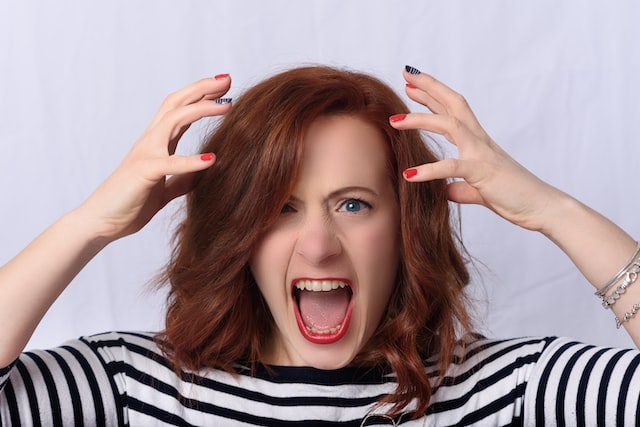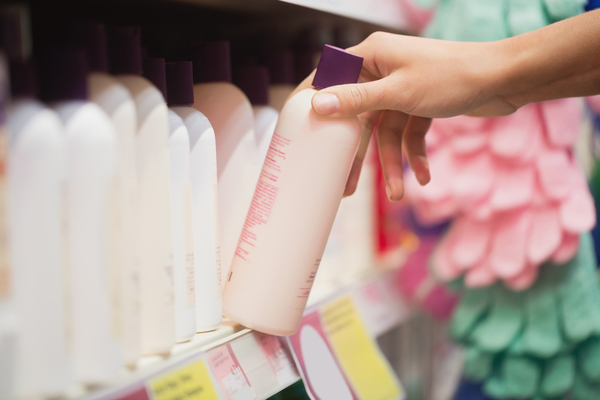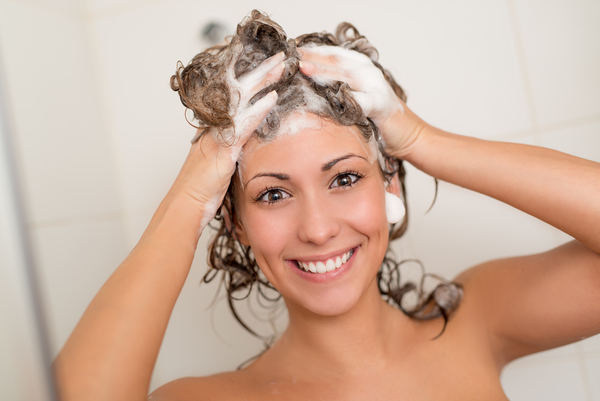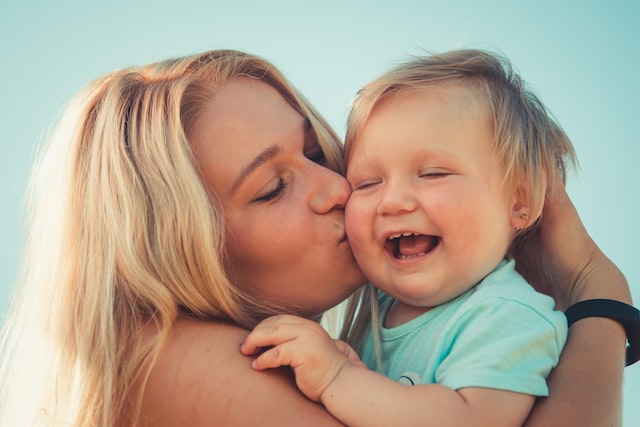Hair issues are a common problem in Singapore, where the hot and humid climate can take a toll on our tresses.
From hair loss to dandruff, itchy scalp to dry hair, there are many different issues that can affect the health and appearance of our hair.
The good news is that with the right knowledge and care, it is possible to prevent and treat these concerns, leaving you with a head of healthy, beautiful hair.
But before we dive into the solution, let’s first understand the root cause of the problem and the different types of hair concerns that are most prevalent in Singapore. Are you ready to discover the secret to a flawless mane?
What are some hair concerns?
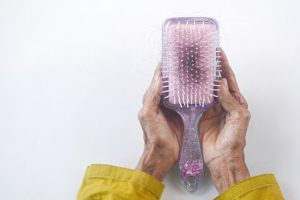
According to a survey on beauty among people in Singapore conducted in 2022, hair loss was the top concern among around 44 percent of respondents.[Source]
Hair concerns are a total bummer, but they’re also super common. You know the drill – hair loss, dry hair, oily hair, dandruff, itchy scalp, and gray hair.
They can be caused by a variety of things like genetics, hormonal changes, stress, or even certain medications. Hair loss can be especially frustrating – male pattern baldness is the most common type for guys, but women can get it too.
And then there’s dry hair, which can be caused by heat styling, UV rays, and certain medical conditions. Oily hair is another pain, caused by genetics, hormonal changes, and an overactive sebaceous gland.
Dandruff and itchy scalp can be caused by dry skin, yeast overgrowth, and certain medical conditions. And gray hair is just part of the aging process, but sometimes it’s caused by medical conditions.
So if you’re dealing with any of these hair concerns, it might be worth chatting with a doc or hair specialist to get to the bottom of it.
Causes of Hair Concerns
Hair concerns can be caused by a variety of factors, including:
Genetics: Some hair concerns, such as male pattern baldness and early onset gray hair, can be inherited from your parents.
Hormonal changes: Hormonal fluctuations can cause hair loss, changes in hair texture and thickness, and even hair growth in unwanted areas.
Environmental factors: Exposure to UV rays, pollution, and harsh chemicals can damage the hair and scalp, leading to dryness, brittleness, and hair loss.
Medications: Certain medications, such as blood thinners, antidepressants, and birth control pills, can cause hair loss as a side effect.
Nutritional deficiencies: A lack of certain vitamins and minerals, such as iron, vitamin D, and biotin, can lead to hair loss and other hair concerns.
Stress: High levels of stress can cause hair loss, as well as changes in hair texture and thickness.
It’s also worth noting that some hair concerns can be a sign of an underlying medical condition, so it’s always a good idea to consult a doctor or a hair specialist if you are experiencing any of these issues.
Types of Hair Concerns
There are many different types of hair concerns, each with its own set of symptoms and causes. Some of the most common types include:
Hair loss: This can refer to thinning hair, patchy hair loss, or complete baldness. Hair loss can be caused by genetics, hormonal changes, stress, and certain medical conditions.
Dry hair: This can refer to hair that is dull, brittle, or prone to breakage. Dry hair can be caused by environmental factors, such as heat styling or UV rays, as well as certain medical conditions and medications.
Oily hair: This can refer to hair that is greasy, limp, and difficult to style. Oily hair is caused by an overactive sebaceous gland, which produces an excessive amount of oil.
Dandruff: This is a condition characterized by an itchy, flaky scalp. It can be caused by dry skin, yeast overgrowth, and certain medical conditions.
Itchy scalp: This is a condition characterized by an itchy, irritated scalp. It can be caused by dandruff, psoriasis, eczema, or a fungal infection.
Gray hair: Also known as canities, gray hair is a natural part of the aging process, which occurs when the hair follicles stop producing pigment. It can also be caused by certain medical conditions, such as vitiligo or alopecia areata.
One type of hair concern that is not as widely known is Telogen Effluvium, which is a condition characterized by a temporary hair loss, usually due to a significant change or stressor in a person’s life.
Telogen effluvium can occur after pregnancy, surgery, significant weight loss, or a change in hormonal contraceptive.
It can also be caused by certain medications, such as blood thinners and antidepressants. The hair loss is usually diffuse, meaning it affects the entire scalp rather than specific areas, and it usually occurs 2-3 months after the triggering event.
The good news is that Telogen Effluvium is usually temporary, and hair typically regrows within 6-9 months with no long-term damage to the hair follicles. However, if the hair loss persists for more than a year, it’s important to visit a doctor to rule out any other underlying conditions.
Diagnosis and Treatment
Diagnosis and treatment of hair concerns can vary depending on the specific type of concern and its underlying cause. Here are some general guidelines for diagnosis and treatment:
Diagnosis
To diagnose hair concerns, a doctor or hair specialist will typically perform a physical examination and ask about the patient’s medical history and any recent changes in their health or lifestyle.
They may also take blood tests to check for any underlying medical conditions or nutritional deficiencies. In some cases, a scalp biopsy may be necessary to confirm a diagnosis.
Treatment
Treatment options for hair concerns can vary depending on the underlying cause and the type of concern. Some common treatment options include:
Medical treatments, such as minoxidil (for hair loss), dandruff shampoo (for dandruff), and steroid injections (for alopecia areata)
Home Remedies
There are several home remedies such as using coconut oil, castor oil, or tea tree oil to promote hair growth or moisturize the scalp.
Things to avoid
Products and hairstyles to avoid, such as hair dyes, heat styling tools, and tight hairstyles, as these can damage the hair and scalp and exacerbate hair loss.
Prevention
To prevent hair concerns, it is important to maintain a healthy diet and lifestyle, avoid harsh chemicals and heat styling tools, and protect your hair from UV rays.
It’s important to note that some hair concerns, such as hair loss, may be permanent and may not be fully reversible. However, with the right diagnosis and treatment, it is possible to manage and prevent further hair loss and promote healthy hair growth.
10 Helpful Tips for maintaining healthy hair
Here are some tips for maintaining healthy hair:
- Maintain a healthy diet: Eating a balanced diet that is rich in vitamins and minerals, such as iron, vitamin D, and biotin, is essential for maintaining healthy hair.
- Avoid harsh chemicals: Avoid using hair dyes, relaxers, and other harsh chemicals on your hair as they can damage the hair and scalp.
- Protect your hair from heat: Heat styling tools, such as flat irons and curling irons, can damage the hair and cause dryness, brittleness, and hair loss. Try to use heat styling tools as little as possible and use a heat protectant spray when you do.
- Protect your hair from the sun: UV rays can damage the hair and scalp, leading to dryness, brittleness, and hair loss. Wear a hat or scarf to protect your hair when you’re outside.
- Brush your hair gently: Brushing your hair when it’s dry or wet can cause damage, so be sure to brush your hair gently and use a wide-toothed comb to detangle it.
- Avoid tight hairstyles: Wearing tight hairstyles such as ponytails, braids, and buns can cause damage to the hair and scalp, and can lead to hair loss.
- Wash your hair with a gentle shampoo: Use a gentle shampoo that is free of harsh chemicals, such as sulfates and parabens, and avoid washing your hair too often as it can strip the hair of its natural oils.
- Get regular trims: Regular trims can help to prevent split ends and keep your hair looking healthy.
- Limit the use of hair accessories: Overuse of hair accessories such as hairbands, clips, and barrettes can cause damage to the hair and scalp.
- Seek professional help: If you’re experiencing any hair concerns, it’s important to consult a doctor or a hair specialist to determine the underlying cause and appropriate treatment.

